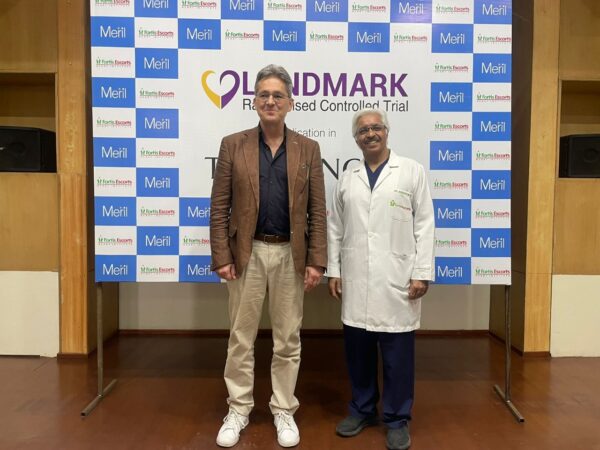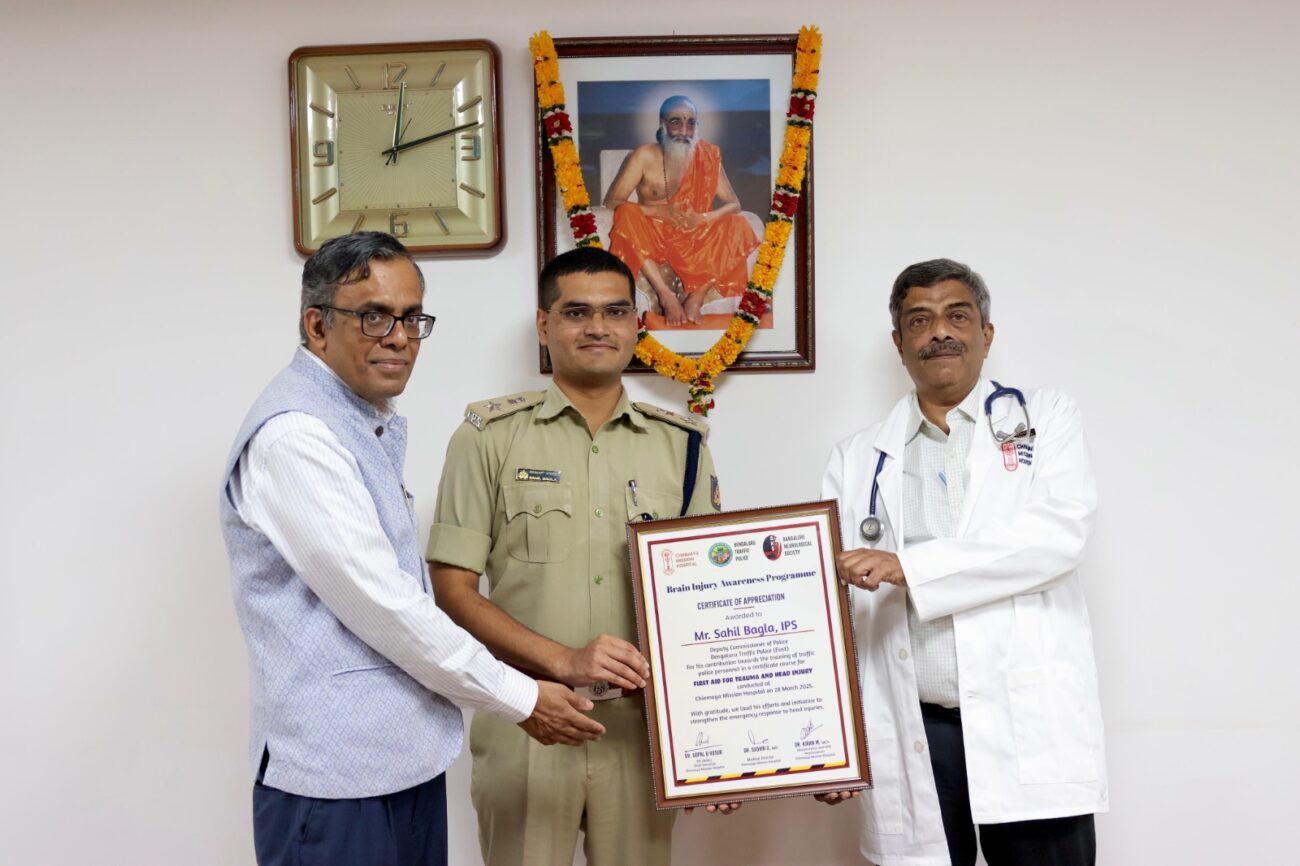For the first time in India, MERIL researches and develops MYVAL THV series
The LANDMARK randomised controlled trial (RCT) for MYVAL THV, a pioneering medical device, has been published by The Lancet This trial proves India’s capability to set new standards in cardiovascular care, and revolutionises heart valve

The LANDMARK randomised controlled trial (RCT) for MYVAL THV, a pioneering medical device, has been published by The Lancet
This trial proves India’s capability to set new standards in cardiovascular care, and revolutionises heart valve treatment worldwide.
Meril Life Sciences, an India-based global medical device company, recently conducted a trial study titled ‘Comparison of Early Outcomes of Newer-Generation Myval Transcatheter Heart Valve Series with Contemporary Valves (Sapien and Evolut) THV Series in Real-World Individuals with Severe Symptomatic Native Aortic Stenosis: A Randomised Non-Inferiority Trial’. The LANDMARK randomized controlled trial for the MYVAL THV series has been published in The Lancet, a prestigious medical journal.
Dr. Ashok Seth , Chairman- Fortis Escorts Heart Institute said The’ Landmark Trial ‘ has been been a meticulously conducted prospective international study which met the highest scientific prerequisites and therefore the results have been appreciated by Interventional cardiology community across the world. We are proud that Myval , Transcatheter heart valve which has been researched and developed in India, has proven itself to be as good and in some ways even better than the conventionally used Transcatheter heart valves from the west. This is a major step forward for the Indian Device industry and Medical Community because it addresses the effectiveness , availability and affordability of this life saving treatment TAVI , not just for numerous patients in india but across the world.
This pivotal research compares early outcomes of the new-generation Myval THV series with contemporary (Sapien and Evolut) THV series in real-world patients suffering from severe symptomatic native aortic stenosis (AS). The findings highlight that the Myval THV series is non-inferior to global giants. Occurrence of primary composite endpoint which is composite of deaths, stroke, major bleeding, acute kidney injury, major vascular complications, moderate or severe valve regurgitation, and the need for new permanent pacemaker implantation as per the third Valve Academic Research Consortium consensus) with no difference in the itemized components of the primary composite endpoints (24.7% Myval THV series vs. 27.0% Contemporary THV series, p<0.0001 statistically significant non-inferiority). This significant achievement underscores the success of the “Make in India” initiative, proving India’s capability to set new standards in cardiovascular care and revolutionize heart valve treatment worldwide.
As per the Global Principal Investigator, Prof. Andreas Baumbach, “The Landmark trial showed that the Myval THV series performed as safely and effectively as contemporary THV series. It is a valve made for everyday clinical practice and an all-comers population. The special feature of intermediate diameters allows for more accurate sizing, which has the potential to translate into improved long-term outcomes. Our patients will be followed up for 10 years and it will be interesting to see the long-term results in the three treatment arms.”
The Myval THV series is a novel THV that comes in various size options compared to the currently available THVs, making it easier to find the right fit for different patients. It is available in a wide range of sizes, including traditional sizes (20 mm, 23 mm, 26 mm, and 29 mm), intermediate sizes (21.5 mm, 24.5 mm, and 27.5 mm), and larger sizes (30.5 mm and 32 mm). This extensive range ensures that more patients can receive a valve that closely matches their anatomical needs, potentially improving outcomes and making advanced heart valve treatment more accessible to a broader population.
The team had also enrolled patients with more complicated cases, such as those with small aortic valve sizes and bicuspid valves, which have only two leaflets instead of the usual three. The Myval THV series produced a greater valve opening (known as effective orifice area (EOA)) for blood flow into the aorta compared to the Sapien THV series in several diameters. However, the Myval THV series produced a similar valve opening to the Evolut THV series. Intermediate sizes of the Myval THV series allowed for better matching of the THV to each patient’s aortic valve size, with 48% of all Myval THV series implants in the trial being intermediate-sized THVs. Further patient follow-up over ten years will provide more information about the long-term effects and durability of the THVs.






